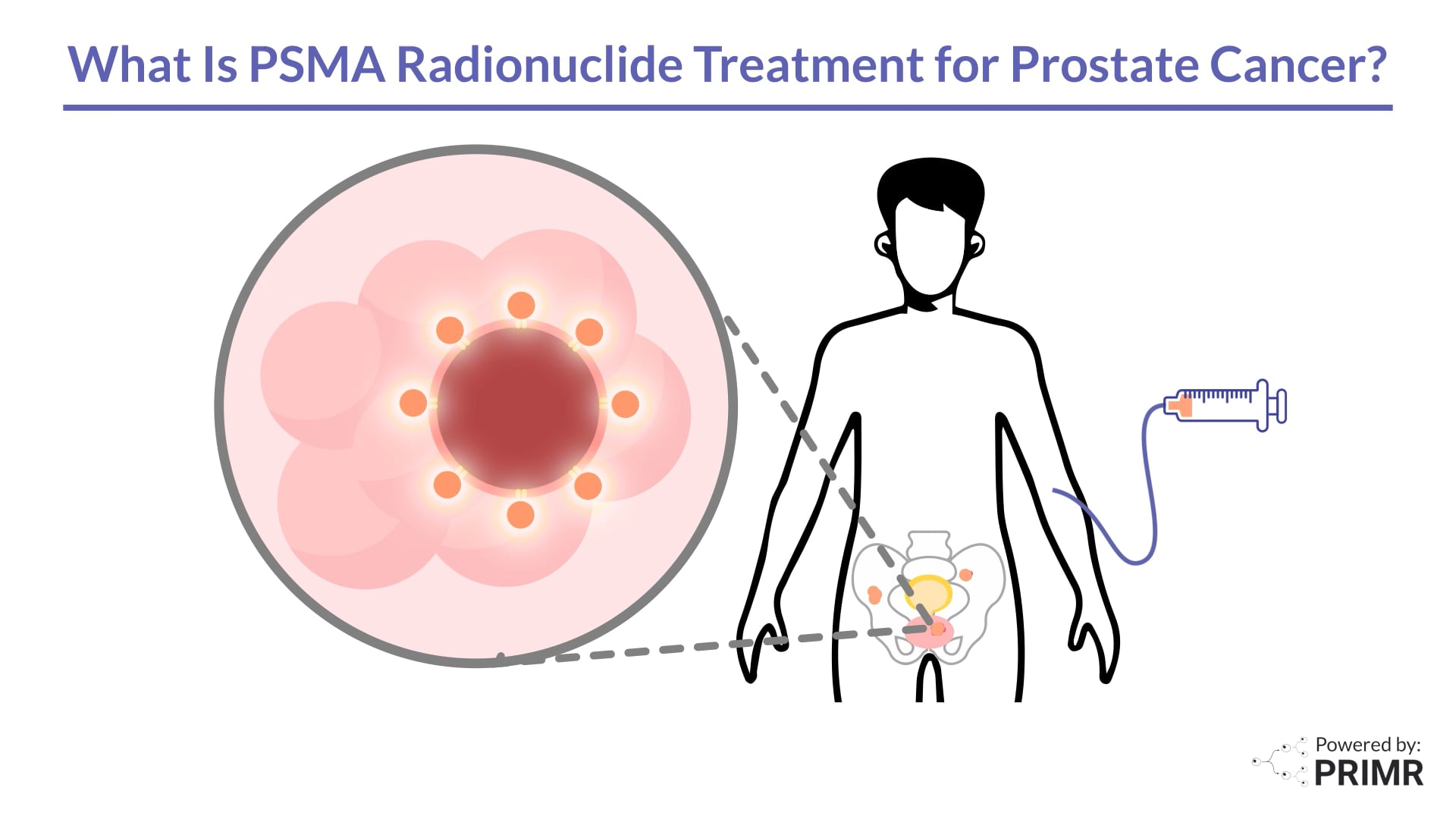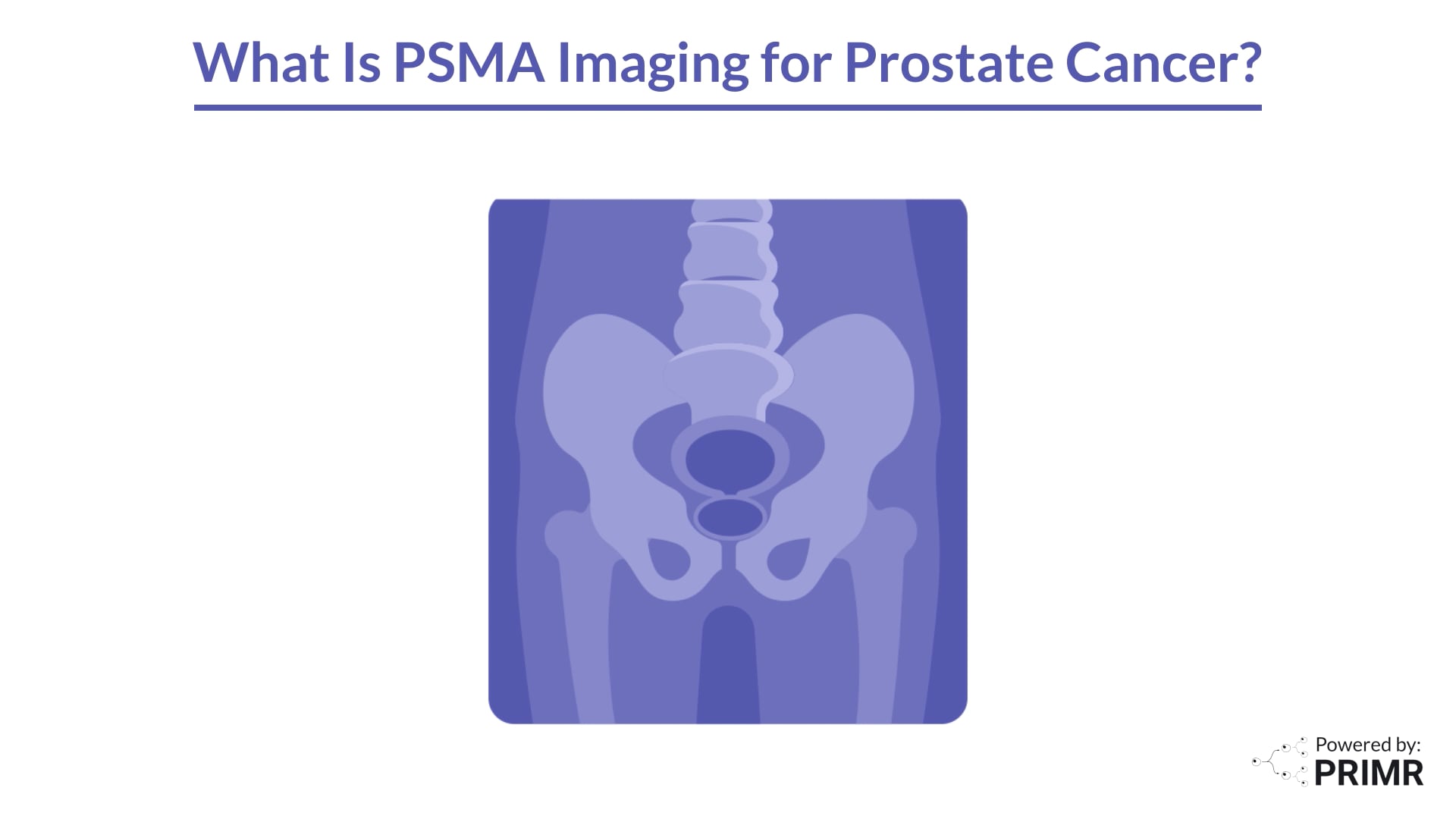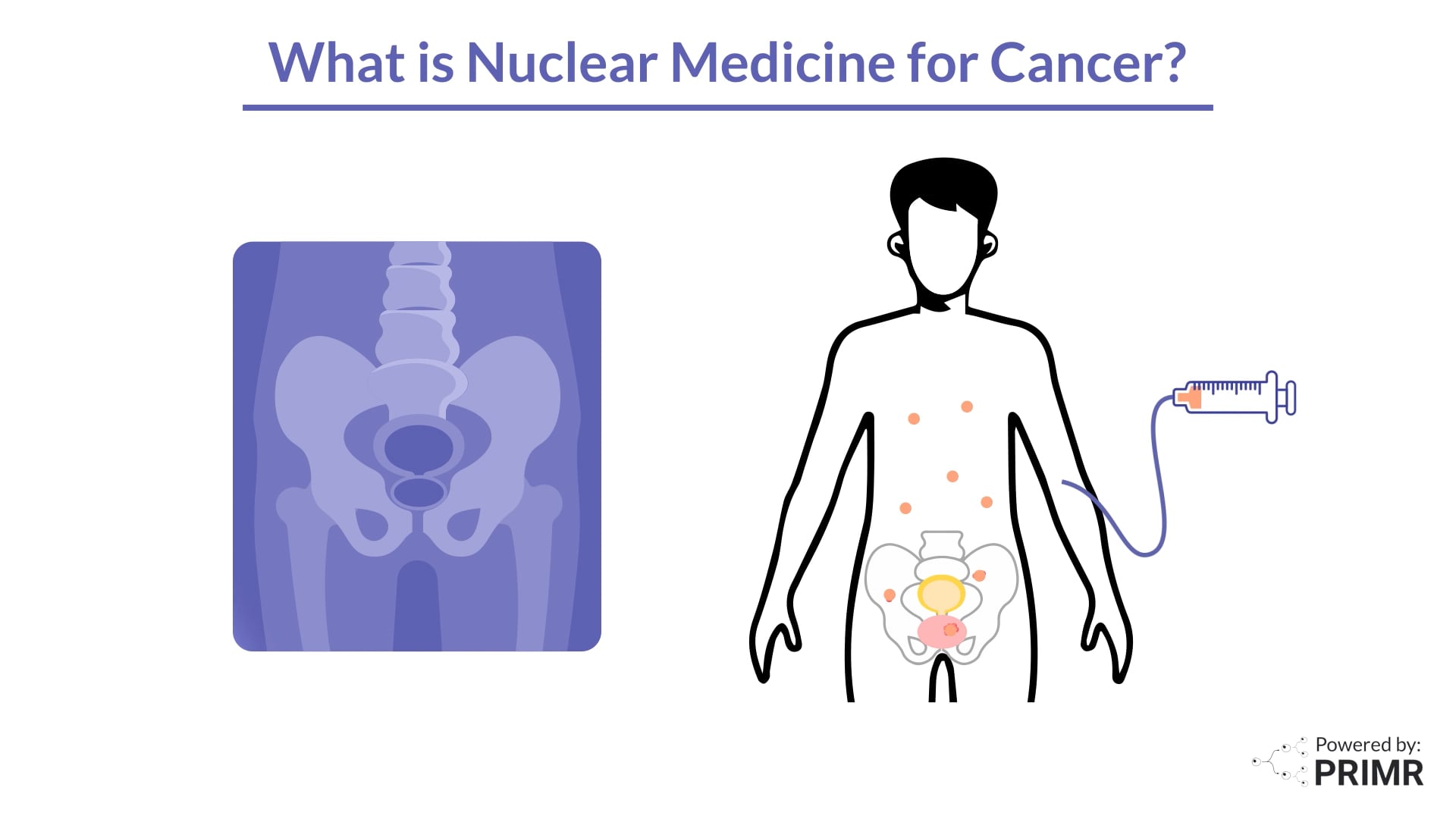What is PSMA?
This video discusses Prostate-Specific Membrane Antigen (PSMA) and its role in prostate cancer care, including how PSMA PET scans detect cancer and guide treatment, and how PSMA-targeted therapy delivers radiation directly to cancer cells.
Read the full video transcript below:
This video is an overview of Prostate-Specific Membrane Antigen, also known as PSMA, what it is, how it works, and why it is important in prostate cancer care.
When diagnosing and treating prostate cancer, doctors use tools such as Prostate Specific Antigen (PSA for short) blood tests, biopsies, and imaging scans to detect the disease and monitor its progression. A more recent advancement focuses on the protein Prostate-Specific Membrane Antigen, more commonly known as “PSMA” (not to be confused with PSA) and how it is used to both visualize and treat certain cancers.
What is PSMA?
PSMA is a protein found in higher levels on most prostate cancer cells than in other parts of the body. It is used in several drugs to bind to or target the protein to help physicians when scanning patients or treating patients with cancer.
First, targeting PSMA helps doctors see certain cancers via PSMA PET scans. A PET scan, or Positron Emission Tomography scan, is a medical imaging test that creates a 3D image of the body’s internal organs and tissues. A radioactive liquid drug, referred to as a “radiopharmaceutical”, is injected prior to the PET scan and can highlight cancerous cells on the image. When used to help diagnose prostate cancer, these advanced high-quality scans help locate prostate cancer cells that have high levels of PSMA receptors on them. This helps doctors determine if a patient has prostate cancer and if the disease has spread beyond the prostate. The cancer is also categorized in “stages” which informs how to best treat the prostate cancer.
Second, PSMA-targeted therapy is a treatment approach for prostate cancer that uses a radiopharmaceutical to target and destroy cancer cells that have high concentrations of PSMA. Some new treatments bind to PSMA on cancer cells and deliver radiation directly to them. This helps destroy cancer cells while minimizing damage to healthy tissue. No medication is without risk including PSMA-targeted therapy but it is important to know this therapy aims to target PSMA-expressing cancer cells and not healthy tissue.
How is PSMA Used in Prostate Cancer Care?
PSMA plays a key role in different stages of prostate cancer treatment.
A PSMA PET scan can help doctors find prostate cancer in early stages or detect if it has returned after treatment. This allows doctors to act quickly and plan the best course of care.
A PSMA PET scan helps identify prostate cancer that has spread which is often referred to as “metastatic prostate cancer.” If prostate cancer moves beyond the prostate, a PSMA PET scan can help show where the cancer is in the body. This can help doctors determine the best treatment approach.
PSMA PET imaging plays a role in guiding treatment. Some treatments are designed to target PSMA on cancer cells, delivering a radioisotope directly to the tumor. Often referred to as “Radioligand Therapy” or RLT for short, this approach can help facilitate targeted treatment for prostate cancer that has also spread beyond the prostate.
If you or a loved one is facing prostate cancer, talk to your doctor about whether PSMA-based tests or treatments might be an option.
This is not medical advice. This video is for educational purposes only. Talk to your doctor before making any medical decisions.

.jpg)
.jpg)
%20Thumbnail.png)







.jpg)
.png)



.jpeg)










.webp)



.jpeg)

